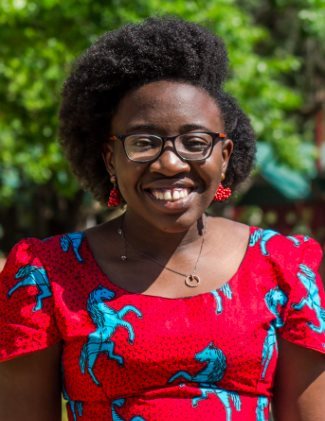
Top stories




LegalTax policy plot twist: A "Medtronic amendment" that arrived 2 years too late
Nina Keyser 2 hours


More news







Logistics & Transport
Maersk reroutes sailings around Africa amid Red Sea constraints







The process has ultimately resulted in the ‘Very Young Entrepreneur (VYE) Scenario’, which proposes investing in entrepreneurs of all ages, but with a focus on entrepreneurs under the age of 25 and successful transitions from school to viable entrepreneurship.
According to the ‘Very Young Entrepreneur (VYE) Scenario’ research paper launched by the Anzisha Prize, which has worked with very young African entrepreneurs for over a decade, investments in supporting successful transitions from school and university directly to entrepreneurship could unlock significant employment gains in Africa.
We chat to Melissa Mbazo-Ekpenyong about the Anzisha Prize and the future of young entrepreneurs in Africa.
Our movement is a layered approach to servicing very young entrepreneurs on the continent. We have various prizes, programs and resources geared towards supporting and celebrating very young entrepreneurs. Our goal is to inspire and support very young Africans with leadership potential to pursue and succeed in entrepreneurship.
We do this by encouraging very young Africans with leadership potential to become entrepreneurs, influencing parents and teachers to support entrepreneurship as a career choice and equipping investors & policymakers to specifically create opportunities for very young entrepreneurs.
You’re never too young to start your entrepreneurial journey. You don’t have to know everything, but you must be willing to test out a few solutions. Entrepreneurship is not an easy pathway and for years it has been glamourised as something you do after everything else has failed.
But what if it’s something you do instead of going down a traditional career path? There is ample opportunity for young entrepreneurs to succeed.
The over-dependence of African youth to pursue formal employment has become quite alarming, given the declining job opportunities in the formal sector. Some of the most effective ways of lobbying for very young entrepreneurs could be to advocate for tax exemptions, simpler registration processes, and business subsidies for them.
For policies and regulations to support entrepreneurs, the entire system should work towards the same goal. This means that educational policies, trading regulations, and business mandates should create an ecosystem where it is more straightforward for very young entrepreneurs to start and run businesses.
While several African countries have national SME policies or youth development policies that entail an entrepreneurship focus, there is a need for clear policies and regulations that support very young entrepreneurs that are running job-generative businesses, have innovative business models, and are conducting new ways of doing business.
These policies and regulations will need to be implemented in an environment that mitigates corruption and regulatory environments that suppress entrepreneurial growth and job creation opportunities.
I would love to see local governments promote entrepreneurship. Policymakers should include the best interest of entrepreneurs within their policy-making strategies. It is also important for young entrepreneurs to understand the environment in which they are developing their businesses.
This will allow them to make better-informed decisions and advocate for policies that will be beneficial to them.
There is a deep yearning amongst educators to better understand entrepreneurship. These are key stakeholder groups who hold incredible power to influence young people’s career choices. As the narrative of the Future of Work and the Fourth Industrial Revolution gathers steam, educators are realising that their curriculum requires skills that were never considered before. These are skills such as innovation, problem-solving, creative thinking and entrepreneurship.
Entrepreneurial training equips young people with agile, sustainable and transferrable skills that can be adapted to changing environments and situations. This is critical in a time where the future is uncertain and educators across the world and Africa are starting to realise the importance of importing this sort of thinking into the classroom.
As expected, and probably more relevant is the disruption that has happened during the coronavirus pandemic. Entrepreneurs, particularly the ones that we work with have had to pivot their business models and respond to the crisis at hand. It has been amazing to see them thinking innovatively to keep their doors open and meet market demand that has drastically shifted. Our entrepreneurs are integrating technology into their businesses, thinking about servicing new customer groups and coming up with products or services that still reflect their businesses strength and experiences.
For example, one of the Anzisha fellows, Abdulwaheed Alayande, the founder of TREP Labs which is a Nigerian-based health tech company dedicated to providing timely solutions to health-related issues. The startup designed a customised mobile app to help track coronavirus cases in Nigeria, detailing the number of active, recovered, and death cases.
The mobile app, called “Itoju”- a Yoruba word for “Care”- enables individuals to report their health status, get graphical information on the potential spread of the virus in their immediate area, and more importantly stay abreast on recent development about the crisis across the world.
The company immediately saw a gap in the market and an opportunity to create an impact during the pandemic and responded with an innovative solution.
This is a form of disruption that I feel is worth celebrating considering the challenges that young entrepreneurs and small businesses have been facing in the last several months.
As we all know, the youth have incredible power to galvanise change in a way that is beneficial for all. In our program and other programs, we’ve seen the tenacity young entrepreneurs have to create lasting opportunities for their peers and drive solutions to improve their communities. The youth are very capable, and we need to equip them with the right tools for them to continue to succeed.